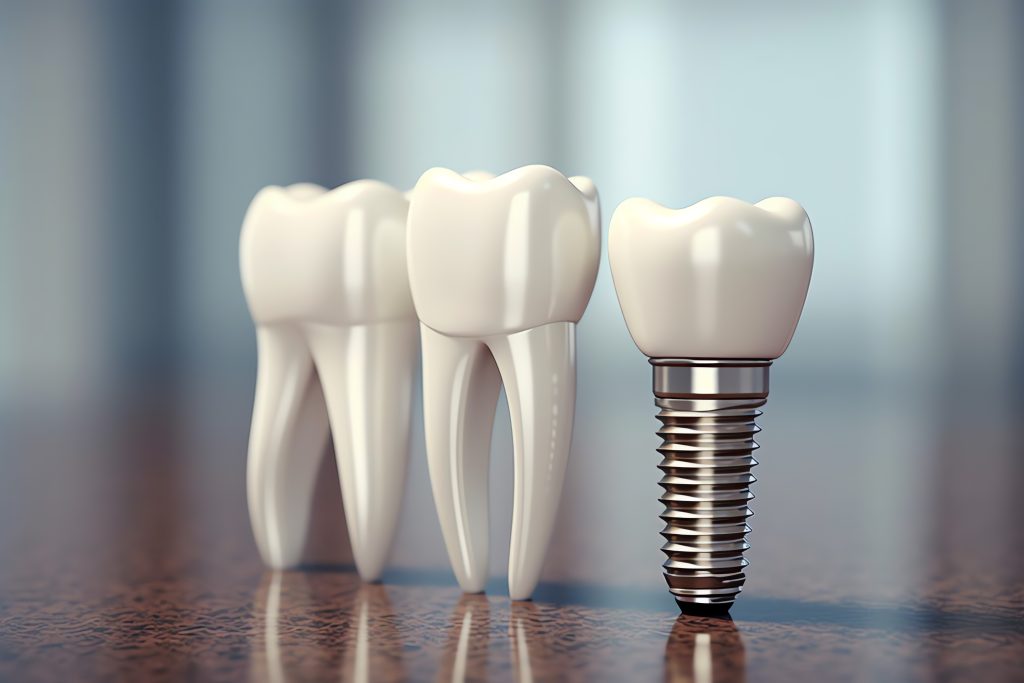Everything You Need to Know About Dental Implants: The Ultimate Guide for Older Patients Treatment Choices
Older people, in particular, will benefit from having dental health according to seniors. Replacement teeth, such as a dental implant is intended to mimic the anatomy of a natural tooth in form and in function. But not every person is suited for this type of treatment. The decision to have dental implants asserts a number of individual factor considerations. For potential dental implant patients, it is really important to understand the process, benefits and limitations associated with having the implants.
What Are Dental Implants?
Teeth implants are most often made from titanium; and are surgically placed into the bone to form a tooth root. Moreover, they serve as an anchor for prosthetic devices such as crowns bridges and dentures replacing the missing teeth. Unlike dentures or bridges, implants are biologically integrated into the bone structure of the jaw after they fuse with the bone in a biological healing process that allows the jawbone to graft around the implant.
As much as implants are common, their effectiveness covers more than a people’s oral health and needs assessment. If you are thinking about this treatment, it is very important to meet with a skilled dentist or oral surgeon to see if you are a good candidate for it.
Who Qualifies for Dental Implants?
The following information should help people decide whether or not the dental implants are right for them:
Processing/jawbone density:
Sufficient Jawbone Density:he implant has a strong jawbone base.
If the jawbone has degeneration because of missing teeth or periodontal disease, an implant surgery is not possible without first performing a bone graft.
No Gum Infections:
For instance, there are proper infection-free gums around the teeth, which amplify the degree of success and acceptance of the implants, especially if they were surgical placements of implants or even the grafts. It would also need the management of the gum disease before the implants can be placed.
Following the Oral Hygiene Protocols:
There is always a possibility of an infection occurring or the implant not succeeding due to the harsh environment created in the mouth through improper oral care. Patients that keep their mouth clean and use proper hygiene along with regular check-ups tend to have better results in their surgeries.
Non-Smokers:
Smoking or continuous application of a naval cigarette causes damage to the healing tissues and results in the increased failure rate of the implant. Such patients are advised to kiss it goodbye plus improve the percentage of overall success of the operation.
Have an Implant:
General health also plays a role. People with uncontrolled diabetic conditions, immune disorders, and susceptible patients are more risky patients whereby other treatments can be suggested.
Malaysian Government Subsidies for Senior Candidates:
In Australia, dental implants are generally not covered by the public healthcare system, but seniors may qualify for subsidized care under specific programs.
Public Health Programme in Australia for Seniors:
Eligible married women of prime age and older than 60 years can seek low budget or free implants from Public dental clinics across Australian states and territories.
Although these services also include extractions and denture-fabrication in some cases, implants cannot be categorized under these services. Typically, seniors on Pensioner Concession Card (PCC) or Commonwealth Seniors Health Card (CSHC) are eligible for this.
Child and Adult Public Dental Scheme (CAPDS):
Some of the states also cover geriatric patients under CAPDS. The program provides coverage for certain dental plans, therefore ask if implant surgery is included as part of the plan.
Nonprofit and Charitable Organizations
There exist various nonprofit organizations that provide affordable dental care for seniors. The services set up by these organizations may vary from place to place but they tend to work with many local clinics in a certain area to offer cheaper services.
- Australian Dental Health Foundation (ADHF): This foundation helps in connecting individuals to volunteer dentists. Though implants are less likely to be worked in such cases, a network may be found outside of one’s practice.
- Local Community Dental Clinics: Many communities develop and manage tooth replacement programs for older adults that may be able to provide dental implants and other related treatments at a lower price.
Making an Informed Decision About Dental Implants
To begin with, in regards to dental implants, there is a large amount of information available to seniors in Australia that allow them to be better equipped on how to manage the expenses. Government programs, commercial insurance, charities, dental clinics, etc are some of the things that can enable seniors to afford the treatment.
While looking for these materials and talking to the physical dentists, old people should strengthen their oral health and not go over budget.






